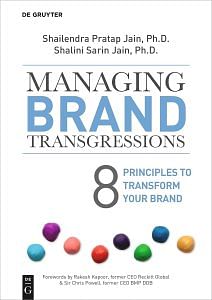Human beings are creatures with reason. Reason depends on respect for rules. As creatures with reason, we are ‘duty-bound’ to follow logical, ethical principles and avoid contradiction (IEP, n.d.). These words of the eighteenth-century philosopher Immanuel Kant are now associated with the field of deontology, which contends that each of us has an obligation to others and that certain universal rules apply to every situation and bind us to these obligations. As we have seen throughout this book, businesses that place profit before principle are businesses at risk. They are at risk of suffering a loss of reputation with their internal and external environment, loss at the bourses, loss of consumer confidence, and loss of employee trust. On the other hand, as found by a Bentley University study, “a values-based culture generates benefits in the form of increased awareness of ethical issues, commitment to the organization, employee integrity, improved decision making, willingness to communicate openly about problems, to report an ethics violation to management, to seek advice about ethical issues, and reduced unethical conduct” (Driscoll, 2017).
A company is often assumed to conduct its business operations under applicable regulations, statutes, and laws. To us, this represents a baseline minimum. We are making the case for a company to go beyond, based on values-driven voluntary thought, word, and action. Merck’s culture was built on the ethic of serving humanity, a philosophy fed into the corporate DNA by the founder himself. Ditto with Johnson & Johnson, whose credo guided James Burke when the Cyanide in Tylenol case erupted. For many years, Toyota was content to sell its cars at a slight loss in the United States because it was accomplishing a key business purpose—it was trying to establish a long-term relationship of trust with the US customers. Some justifiably call this a market share grab. However, that may not be the entire story. The US regulators have relentlessly pursued the creation of an economic environment of open competition, customers being sufficiently well-informed, and the existence of a strong and actionable legal framework to address corporate wrongdoing. In such an unforgiving business climate, Toyota’s effort at grabbing market share would have backfired if its products were fundamentally flawed. Another aspect of Toyota’s strategy was that it was attempting to disabuse US consumers of their belief that items made in Japan were cheap and unreliable. Perhaps a low price was hurting Toyota in this pursuit, but the company accomplished both goals—trust and market share—by patiently playing out “The Toyota Way,” a specific emphasis on long-term business goals, even at the expense of short-term profit. Today, we teach this “Japanese” principle in classrooms all over the world.
There were other dimensions to the unfortunate and yet evolving story of the 737 MAX. Boeing ostensibly played into its transgression deeper, particularly by choosing not to take accountability and choosing not to communicate about the disasters. A crisis creates a vacuum, an informational void that gets filled one way or another. As discussed in the last chapter, the longer a company is perceived to have transgressed and delays communication, the more likely it is that this void will be filled by critics. Boeing’s initial strategy appeared to be “the less said the better.” Irv Schenkler, a management professor at NYU’s Stern School of Business, opines that this strategy created a vacuum in which the media stepped in and reported details on meetings and messages that contradicted company statements. Boeing converted an operational crisis into a reputational mega-crisis—driven by poor messaging from the start, creating concern and fear (Baker, 2019).
Many saw Boeing’s approach as defensive, passive, and slow, implying a lack of remorse at the loss of human life, empathy with those affected by the crisis, transparency, and willingness to take accountability. Its haste to produce a new aircraft that accounted for about a third of its revenue revealed an overriding emphasis on profit. Timothy Coombs, a crisis communications expert, argues that three features define corporate openness—availability to the media, willingness to disclose information, and honesty. It is an open empirical question how Boeing performed on each of these three features (Matthews, 2019). A PR Week article observed: “Boeing lost control of the public narrative and appeared to be reacting to public pressure rather than putting the safety of passengers first” (Hickman, 2019). Forbes further reported: “(The public) noticed a seemingly complete lack of urgency, a lack of responsibility taken for the crashes, and the deflection of blame. They noticed immediate silence from the top. And of course, they noticed that Boeing had to be forced to ground their 737 MAX 8 fleet—and that they did not offer to do so in the first place” (Temin, 2019).

This excerpt from Managing Brand Transgressions: 8 Principles to Transform Your Brand by Shailendra Pratap Jain and Shalini Sarin Jain has been published with permission from De Gruyter.






